Since I started as a personal trainer at Fit 2 Excel, I have learned something new every single day. Whether it has a been a programming lesson, a coaching cue, or a business lesson, every day has brought new learning experiences. As a fitness professional, or any professional for that matter, it is paramount to continue your education, whatever form that may be in. Here are three of the biggest lessons I’ve learned in my brief time as a personal trainer.
- Give fewer cues, use fewer words
My biggest challenge has been to find ways to communicate to athletes exactly what I’m looking for. That means for each exercise finding the right cue that will work for them. Admittedly this has been a struggle. Furthermore, when I cannot quite get an athlete into the proper position, I give way too many cues, and overwhelm them. We all understand what it’s like to be given 15 things to think about. The result is always the same: none of them occur. In learning environments where repetition is key to ingrain a pattern, like exercise, giving the person only one thing to focus on at a time is the best solution. Single tasking is significantly more effective in any learning process than multitasking. We all know this intuitively, because trying to consciously focus on two things at once means that neither gets done.This fact is directly applicable to how we as coaches should help the people we train improve. I remember on the first day of the outdoor summer athletic performance class this past summer I was teaching nearly 70 kids how to squat wrapped around me in a big circle. To start off, I said to all of the kids, probably in a mumbled voice, “Set your feet shoulder to hip with apart, shove your feet into the ground, create external rotation, shove your hips back, and, keeping your weight on your heels sink back into a squat.” I looked around and saw nothing but blank stares and a few broken squats. After this experience, I learned that maybe I should just start by saying, “Set your feet shoulder to hip width apart.”
Finding the right cue for the right individual in the right situation is admittedly very difficult. Turning the images in your mind into concise coaching cues will only come with experience. With trial and error, over time a system will be developed to give better and better coaching cues.
Furthermore, I have learned that most people that come to work out, plan to do exactly that; work out. Most clients don’t care for a physiological or anatomical explanation for why an exercise is effective and why I have included it. Early on, I developed a habit of needing to justify my exercise selection, rep scheme, rest periods, everything. To most, this is not important.They just want to be told how to get it done. I understand that not everybody is an exercise geek like myself, and have since backed off on the confusing explanations. So, I have had to learn how to individualize this aspect of coaching. Some are interested in hearing more about a particular movement or training parameter while others are not. Note: If you do care about a particular explanation, you are more than welcome to ask!
This skill of being clear and concise is applicable in any facilitator role, or any role for that matter. Think about areas in your life where you could be a more effective verbal communicator. Are your words mumbled? Do you simply give too many directions so there’s no chance of them being understood? I encourage you to look at where you are making similar mistakes, and take action to improve upon those aspects.
- Show confidence
The first few weeks teaching bootcamps I was understandably nervous. I was confident in my competence as a coach but not as confident in how others would react to my coaching style and to my personal twist on our workouts. Looking back it was clear that this was portrayed in my body language and verbal communication. As time went on I learned how to make the classes more smooth, energetic, and fun without changing anything about the workout itself. Improving how I communicated sets, reps, and exercises made a huge difference on how people responded.
First, I started to improve my body language to be more confident. With shoulder blades back and hands out of pockets suddenly class became easier to teach. More eyes were looking at me and directions went much smoother. On the verbal side, I started to speak louder, clearer, and crisper. In that loud gym with music playing, it is paramount to give clear, understandable directions. By upping my voice volume about 20% and being more methodical with word choice and pronunciation, these problems have subsided greatly. So, although my confidence as a coach has been there since day one, how I show this confidence has drastically changed. By improving these areas, classes will continue to run smoother and smoother with repetition and practice.
- Marketing is important
You can have the best product or provide the greatest service in the world, but without methods to get it to your clientele, it is useless. I imagined this job as spending most of the time writing workouts, researching exercise protocols, and, of course, coaching. Although these are undisputably a huge part of our job as fitness professionals, I underestimated the impact and importance of learning how to market our service. Within the first month I found myself speaking in middle school classrooms, folding up 100’s of brochures, and sitting in staff meetings dedicated to marketing. At first I was a little frustrated, spending my time doing non-coaching related tasks. But, I have come to realize that it is a huge piece of the puzzle.
On top of that, marketing is also how you present yourself in a professional setting, such as showing up on time to be prepared for class, and always wearing appropriate teaching attire. Little things like this make a huge difference in how we are perceived by those we work with. The key is in the details.
Wrapping Up:
What do each of these points have in common? Communication. Being the best at what you do is useless without methods to communicate it. The most successful businesses in any field are successful not just because they have a great product or service, but because they have the best protocols for getting that product or service to their customers. Communication skills and how we communicate make a huge impact on how we can best help those around us. I’m looking to continually develop these communication skills in numerous forms, from giving simpler cues to projecting my voice, to developing ways to market our service.
If you have any comments, questions, or wisdom, I’d love to hear what you have to say. Feel free to reach out on social media and give us your thoughts!



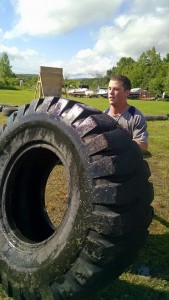
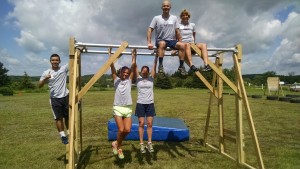
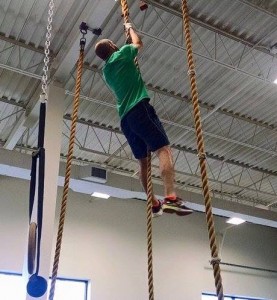
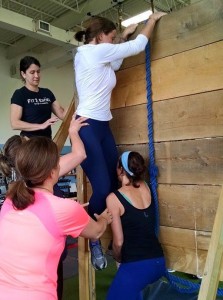
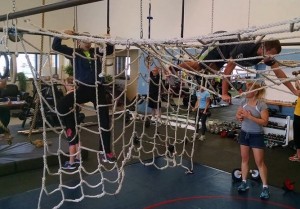
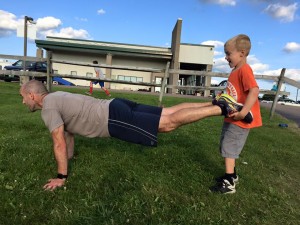 ect with your family in a HEALTHY way
ect with your family in a HEALTHY way